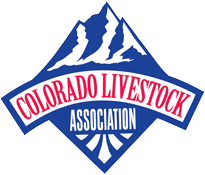Waters of the United States (WOTUS)
Important step forward with Sackett v. EPA
In May of 2023, the U.S. Supreme Court ruled unanimously in favor of the Sackett family in Sackett v. EPA – the court’s most recent consideration of which features are subject to federal Clean Water Act jurisdiction. In its holding, the court soundly rejected the contentious “Significant Nexus” test. Colorado Livestock Association, National Cattlemen’s Beef Association (NCBA), and other state livestock groups strongly supported this ruling. NCBA is currently engaged in litigation against the Environmental Protection Agency (EPA) regarding the Biden Administration’s WOTUS definition.Since EPA’s adoption of the “Significant Nexus” test, livestock producers have had to retain costly legal services to determine if water features on their property are federally jurisdictional. The Supreme Court’s opinion refocuses the Clean Water Act on protecting our water resources through regulatory clarity. NCBA will continue working with the EPA and U.S. Army Corps of Engineers as they implement the Court’s new Continuous Surface Connection standard.CLA supported an amicus brief submitted by NCBA in the Sackett case, encouraging the elimination of the Significant Nexus test in exchange for a more practical standard. In its brief to the Court, NCBA highlighted the unconstitutionality of imposing criminal penalties for violations of vague standards under the Clean Water Act. The Court recognized and reversed the Significant Nexus test, in part due to the constitutional due process risk that it created.CLA as a state affiliate of NCBA has been heavily involved in litigation surrounding the WOTUS rule since 2015. NCBA filed suit against the Obama-era WOTUS definition, defended the Trump-era definition that brought more clarity to what water features are included under WOTUS and filed suit against the Biden administration’s WOTUS rule that did not include critical agricultural exemptions.
Overview
For years, the livestock industry has fought against the widely overreaching 2015 Waters of the United States rule. On September 12, 2019, the Trump Administration finalized the repeal of the 2015 Waters of the United States (WOTUS) rule and in April 2020, finalized the Navigable Waters Protection Rule (NWPR). The NWPR, unlike the 2015 WOTUS rule, did not subject ephemeral streams or isolated water features to federal regulation. Additionally, the NWPR provided much-needed agricultural exemptions for stock ponds, prior converted cropland, and other agricultural features. Livestock agricutlure groups defended the NWPR in federal courts across the country, but unfortunately, it was struck down by the U.S. District Court in Arizona on August 30, 2021.
Where are we now?
In early 2021, the Biden Administration announced their intent to repeal and replace the NWPR. Starting in August 2021, the Environmental Protection Agency (EPA) and the Army Corps of Engineers held public listening sessions. At these sessions, NCBA, state affiliates, and numerous cattle producers provided comments in support of NWPR. Unfortunately, the court decision striking down the NWPR left EPA to interpret WOTUS consistent with the pre-2015 regulations until further notice. While the Biden Administration develops new WOTUS rules, NCBA will remain part of the conversation.
What Does this Matter for Livestock Producers?
The 2015 WOTUS rule overregulated the types of isolated or temporary water features commonly found on ranches, such as stock ponds. For years, the WOTUS rule was tied up in litigation leaving cattle producers with regulatory uncertainty while courts decided whether the rule could be enforced. The NWPR limited the scope of federal oversight to larger water systems, including territorial seas, lakes, ponds, and adjacent wetlands as well as tributaries to those bodies of water. As the EPA continues developing a new definition for “waters of the U.S.,” CLA will make sure that producers’ voices are heard throughout this process. CLA will also collaborate with other national and state affiliates and members to share individual stories of how an overly broad WOTUS definition impacts farms and ranches.
